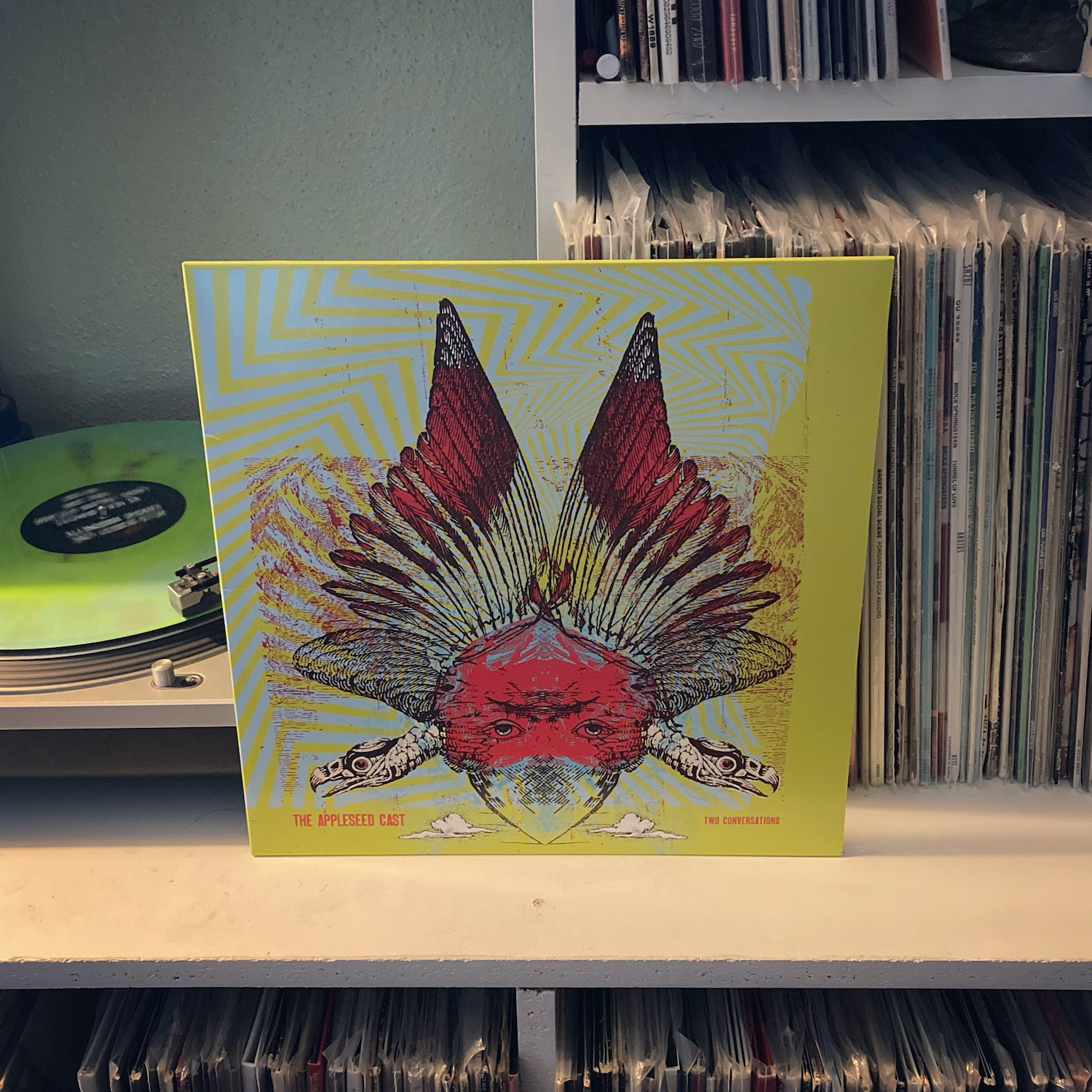
If I seem to be contradicting myself across the different narratives I tell about how I got into the Appleseed Cast, it’s because my relationship with the band is a little contradictory. We had many passings with one another before I finally fell in love with the project, and each of those feel like a fitting introduction for a story about how someone fell in love with one of their favorite bands.
But perhaps the most impressing of those introductions was the track “Fight Song,” a driving, passionate lament that cut me to the core when I first heard it. I was already familiar with the group after hearing them on a few Deep Elm compilations, but I had never dug further. “Fight Song” convinced me that they were a band that was worth the attention.
Unfortunately, it came at a time when I was setting aside the emo/punk/hardcore scene as a whole and branching out into other genres, and so I missed it at the time. Luckily, there’s always still time.
Hot on the heels of Low Level Owl’s experimental grandeur, Two Conversations is a return to form in a way. Many have pointed out the similarities between their career arc and Radiohead’s, and if Low Level Owl vols 1&2 were Kid A and Amnesiac, Two Conversations is Hail to the Thief—the record that returns to the more conventional sonic pallettes and songwriting of the genre-defining masterpieces they released before (OK Computer and Mare Vitalis) but now broadened with the lessons of their more experimental periods.
That metaphor overstates the gap between Mare Vitalis and Low Level Owl though. Besides the numerous instrumental interludes and the gapless playback of the entire album, most of the proper songs on Low Level Owl would fit nicely on Mare Vitalis.
Two Conversations is the next entry in their streak of excellence. And in some regards, it may be the most rewarding album they had released up to this point. The songs are more developed than those on Mare Vitalis but still captures the same dynamic energy. The album itself is much more focused than Low Level Owl, but it glistens with the same sonic brilliance and broad palette.
And the songs are some of their best, ranging from dramatic frenzy to bursts of joy—sometimes even in the same song. See for instance the opening track “Hello Dearest Love,” which alternates between nearly holiday-like exuberance to an angular punk fury not unlike mewithoutYou. “Hanging Marionette” is a touch more somber, its atmosphere augmented by electric pianos and sleighbells. And of course there’s “Fight Song,” which may be the most direct gut punch they’ve ever recorded.
In the context of the album, “Fight Song” is the burst of a steam valve. The pressure has been building to that point, and afterward, it begins to ease. “The Page” is stripped, a buzzing acoustic guitar accompanied only by a single lead guitar and Crisci’s voice. If his timber was more nasal, this could be a Neutral Milk Hotel track. “Sinking” slows down the tempo and rides an acoustic guitar track through atmospheric feedback before a plodding wall of noise not unlike “View of a Burning City” from Low Level Owl. (Note: “The Page” and “Sinking” are flipped on the vinyl edition, and I think I like that sequencing a bit more). “Innocent Violent Ordinary” is as urgent as anything on the A-side, but with far less anxious tension.
The two final tracks sigh under the weight of the rest of the record, pulling back the volume and cranking the emotionality. “How Life Can Turn” is subdued but no less moving. “A Dream For Us” is glacial and swelling, organs filling every space of the atmosphere while Crisci’s voice returns to the melody of “Hanging Marionette” in a fitting closing coda.
On this vinyl release though, finale is undercut a little by the bonus track “The State That I Was In,” an upbeat, almost shoegazy statement that almost sounds like a Promise Ring outtake. It’s a fine track out of context, but after the closing moments of this record, it feels a little bit like a rude awakening. I’m of the mind that every bonus track should be preceded by a locked groove so you can access it if you like, but you don’t have to on every listen (see also: the cover of “Say It Ain’t So” at the end of The Moon is Down).
In all, Two Conversations is an incredible statement, and one that proved once and for all that The Appleseed Cast wasn’t just on a lucky streak. And let’s be clear: merely avoiding disappointment after Low Level Owl is an achievement in and of itself. Appleseed Cast exceeded that goalpost and proved that they still had a lot more to say. And given that they’re still active and creating brilliant records, their staying power is limitless.